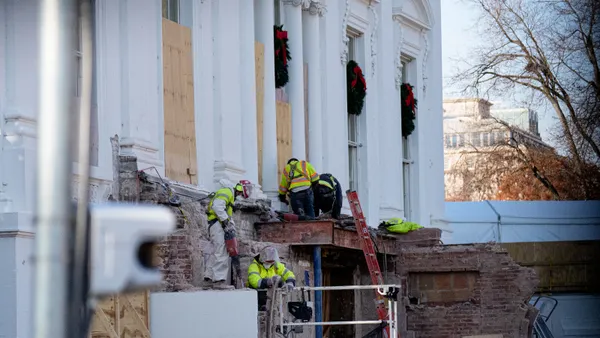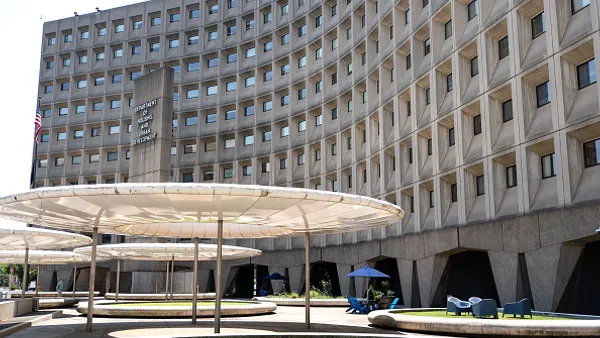Dive Brief:
- An Iowa masonry contractor that performed $3.2 million of work at Omaha National Cemetery in Nebraska is suing the general contractor and insurance company for approximately $1.25 million, plus interest, in allegedly unpaid bills, the Lincoln Journal Star reported.
- Seedorff Masonry filed the legal action against Chicago-based general contractor Archer Western Construction and Travelers Casualty and Surety Company of America.
- Archer Western entered into a contract with the U.S. Department of Veterans Affairs in 2014, and the cemetery opened in 2016.
Dive Insight:
Many times, when a contractor is owed a significant sum of money, it will protect its position by filing a mechanics lien against the project. A mechanics lien creates an encumbrance on the title, meaning that a sale of the property can't be completed without satisfying the amount of the lien. In addition, some contractors who file a lien can force the sale of the property in order to collect money owed. The details of lien laws vary from state to state.
Unfortunately for those subcontractors owed money on a federal project, typically the only way to get paid for an unpaid invoice is to file a claim with the general contractor's bonding company because it is not possible to file or enforce a lien against a federal project.
But just because a contractor can't file a lien on a federal project doesn't mean that the federal agency overseeing it can't be put under pressure. The VA can attest to this because it has had to answer to Congress for the cost overruns and delays that seem endemic to the agency's construction projects, particularly for the new VA hospital under construction in Aurora, Colorado.
That hospital is $1 billion over budget and four years behind schedule; nevertheless, earlier this month, the VA announced the project is nearing completion, although the problems haven't been resolved yet. The hospital is twice the size of the Denver facility it is replacing, but the layout is such that it will not be able to provide as many services as it was expected to offer.
So, the VA will have to use both hospitals to keep pace with demand for up to five years and will have to make as much as $350 million in repairs to the Denver hospital. The VA said it would use both facilities until it could buy an additional building to supplement the Aurora hospital.
Spurred on by the Aurora debacle, Congress decided in 2016 to put the Army Corps of Engineers in charge of any VA construction project of $100 million or more.













